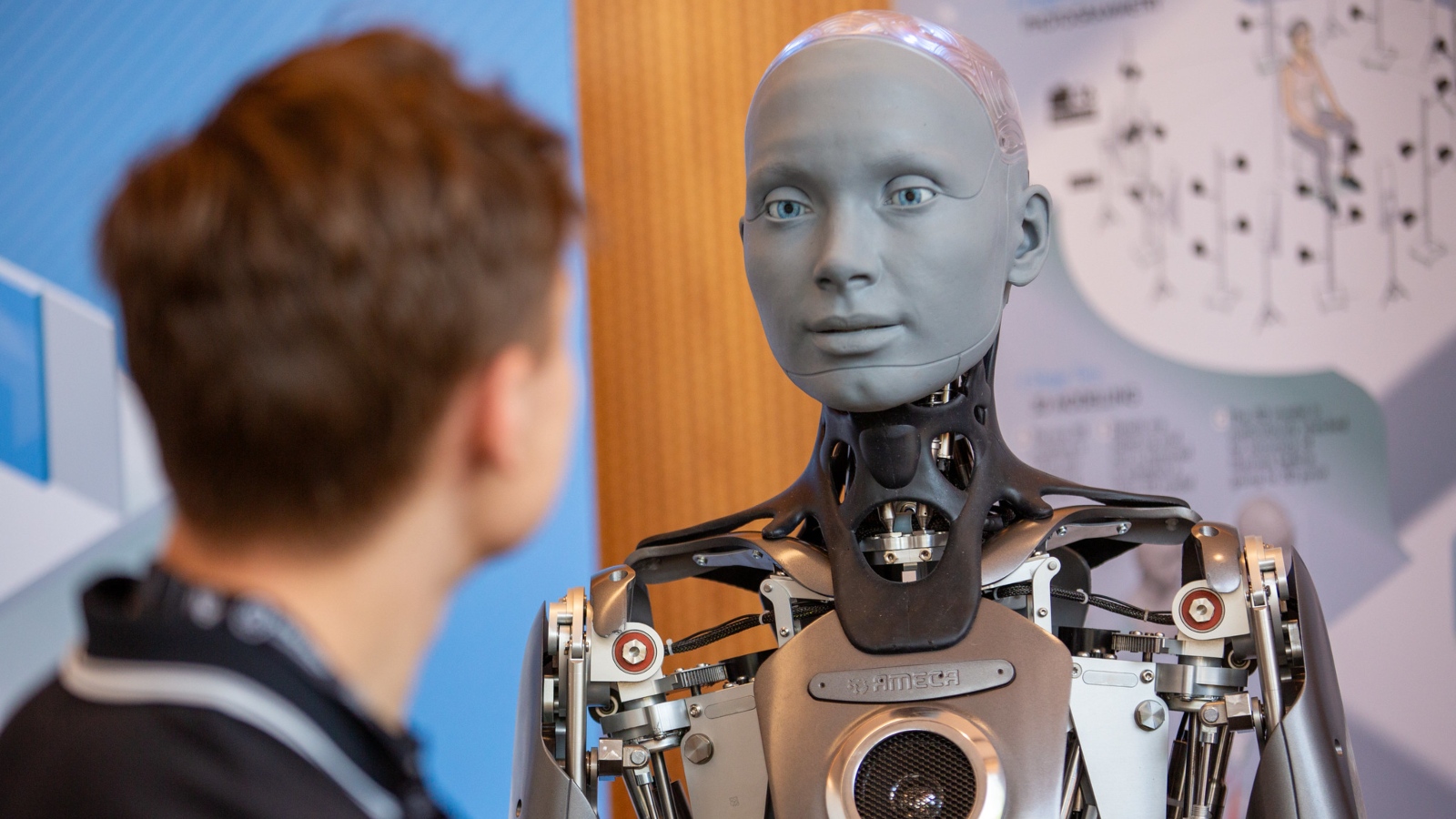
The European Economic and Social Committee (EESC) and the International Labour Organization (ILO) held a joint high-level conference entitled ‘Social Justice in the Digital Era: AI’s Impact on work and society’, gathering over 300 experts, policymakers and social partners and civil society representatives to discuss how AI can contribute to inclusive labour markets, decent work and social justice.
The conference saw prominent leaders – including several EU Labour Ministers – deliberate on strategies to harness AI’s potential while addressing the risks it poses to workers’ rights and labour markets. This event marked a major contribution to the Global Coalition for Social Justice, reinforcing the need for a coordinated approach to AI governance at both European and global levels. This joint high-level conference was organized by the European Economic and Social Committee’s section on Employment, Social Affairs and Citizenship (SOC) and the International Labour Organization (ILO).
A call for ethical and inclusive AI development
Opening the conference, EESC President Oliver Röpke underscored the urgent need for a human-centric approach to AI, stating that: “Artificial intelligence is already reshaping our societies and labour markets, bringing both opportunities and challenges. The EESC and its partner organisations are committed to ensuring that AI serves as a force for social justice, strengthening workers’ rights, promoting inclusion and preventing new inequalities. A fair and human-centric AI future requires collective action—from policymakers to social partners and civil society – to ensure that technology works for people and not against them.”
ILO Director-General Gilbert F. Houngbo emphasised the importance of pro-active policies to mitigate AI’s disruptive impact on jobs and workplaces: “We need to ensure that we shape AI in ways that advance social justice. This means supporting workers, including with skills and social protection, facilitating access by enterprises of all sizes and in all parts of the world to AI technology to harness productivity benefits, and ensuring that AI’s integration into the workplace protects workers’ rights and promotes social dialogue in the digital transition.”
Ministers and experts weigh in on the Future of Work
Over the course of two panels, high-level speakers shared their insights on the challenges and opportunities they perceive to leverage AI to promote decent work and inclusive labour markets and contribute to gender equality in the years to come.
The first panel, ‘How can AI be leveraged to contribute to decent work and a socially just society in the EU and beyond?’ saw several EU Labour Ministers take the floor, including Agnieszka Dziemianowicz-Bąk (Poland), Yolanda Díaz (Spain) and Niki Kerameus (Greece), as well as representatives from Brazil, Albania and social partner representatives, exchange views on policy frameworks that can ensure AI enhances job quality and worker protections rather than exacerbating inequalities.
The discussions highlighted the fact that although there is a risk surrounding the rollout of AI, there is no need to be luddites in the face of this new technology. It is essential however, to focus on social dialogue and include workers in the deployment of AI, while paying particular attention to re-skilling and up-skilling efforts. A proper, controlled rollout and regulation of AI will help avoid major shocks and enable this technology to reduce repetitive tasks without necessarily leading to large-scale layoffs.
In the second panel, ‘How can AI be used to promote inclusive labour markets and gender equality?’, European Commission, European Parliament representatives and EESC Members, alongside the Minister of Labour, Solidarity and Social Security of Portugal, Maria do Rosário Palma Ramalho, the Delegate of the French government to the ILO and to the G7-G20, Anousheh Karvar (among others), examined how AI can promote greater diversity in the workplace. They highlighted key findings from recent EESC opinions, including Pro-worker AI: levers for harnessing the potential and mitigating the risks of AI and AI for public services, organisation of work and more equal and inclusive societies.
Also covered during this panel were the issues of eliminating algorithmic bias and ensuring that AI-driven hiring and workplace management tools contribute to fairer labour markets. Looking beyond the importance of social dialogue in the rollout of AI in companies, the need to continue developing international cooperation on this issue was also highlighted (such as the G7 Hiroshima Process).
A shared commitment to a just digital transition
The conference concluded with a strong call for multilateral cooperation. The EESC and ILO reaffirmed their commitment to working with governments, businesses, trade unions and civil society to ensure that AI promotes social justice. The discussions underscored that AI should not be a source of division or exclusion but a driver of opportunity, innovation and fairness in the world of work.
With AI’s influence on labour markets set to grow, the EESC and ILO will continue their collaboration within the Global Coalition for Social Justice, ensuring that AI governance remains a key priority for policymakers across Europe and beyond.
To read the original article, click here.
Source: ILO
 Welcome to the United Nations
Welcome to the United Nations